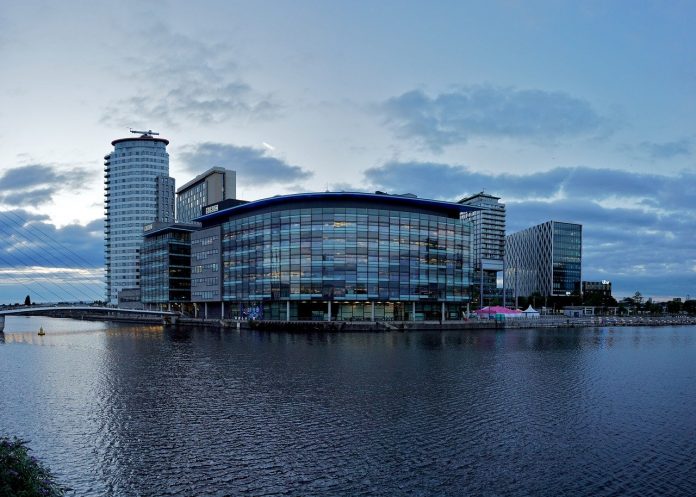The UK experienced an extraordinary decline in its economy during the peak of the pandemic in 2020 and has since seen an imbalance in the way it is recovering. Not only does the stock market see a V-shaped curve, but the regions also recover differently.
However, Manchester seems to be one of the lucky ones where growth is accelerating. At the moment, Manchester appears to be a city at a unique stage of development – it is a full-fledged city that is possibly closest to London, alongside possibly Birmingham. With a £ 62.8 billion economyThe city is certainly a powerhouse.
However, unlike London, property prices remain affordable. The average semi-detached house sells for around £ 251,000 in Manchester, while a single family home in London averages a million.
This discrepancy is huge. It’s no surprise then that Hong Kongers grab themselves cheap houses in Manchester, in a city with a great economy and room for growth. Of course, the pound has appreciated against the HKD over the past year, so it may also be due to the growing accessible money transfer industry that is also helping this trend.
The growing pound makes real estate more expensive for FDI at first, but it is also another attraction for people like Manchester. Since Brexit became a formality, speculation has eased, which appears to have helped the pound’s volatility. It could be argued that it has been undervalued since 2016 due to the threat of a worse possible Brexit deal. Despite being a controversial business, it has brought more security – which is the enemy of volatility. Because of this, big investments are back on the table in places like Manchester.
In fact, Manchester, besides London, attracts most of the FDI to the UK and has very strong foreign investment. Indeed, GBP 231 GVA was generated of the 3,458 jobs created in 2019.
A bright future for Manchester
Manchester is synchronized ‘better dismantle‘by the Prime Minister, in part because it doesn’t rely overly on just one or two sectors. Manchester is instead a well-diversified city with growing tech, media and real estate sectors that have limited the damage from the Covid-19 lockdown.
Magnetic North Design Studio General Manager Ms. Cordell explains, “We absolutely see this as a moment of receding. Our economic vision is about stepping on the other side and focusing on something better – that works better for people and better for the planet. That means not going back to what it was before. “
The spirited business world mixed with the history and strength of the “original modern city” is a good sign of further development. In addition, Manchester spent significantly more time in lockdown than many other cities. This, of course, can be interpreted to mean there is more distance to rebound, and it also shows the strength of the companies that have survived. In a perhaps harsh metaphor, like the virus itself, companies are stronger because the weaker ones have been removed. From here, further companies will be founded in the recovery phase.
It is also the geographic proximity of Manchester that can make the argument that Manchester has a lot more growth than that. For example, it is only a short distance from Sheffield, Leeds and Liverpool – all of which are either industrial power plants or strong, growing economies.
Over 7 million people live within an hour’s drive from Manchester. Manchester itself has a population of nearly 600,000and is set to increase by a further 56,000 by 2034 – almost 10%. This is one of the main factors driving not only economic growth but also house prices.
There is a problem of underdeveloped rail infrastructure between them, which means cities cannot create synergies with one another and share resources more efficiently. However, this has a good chance of improving once the potential is exhausted – especially with the Transpennine Route Upgrade announced to strengthen the Greater Manchester with Yorkshire rail. While this will result in a 16-day rail shutdown, the developments are imperative and are welcomed.
The participation of money transfer companies in the growth
As mentioned earlier, money transfer companies help reduce the friction between money exchanges by offering inexpensive and fast transactions. Companies like MoneyCorp from the perspective of 3,000 independent reviewsmake it very easy to buy overseas property – which has certainly contributed to the growing FDI in Manchester.
However, it is not only foreign investors who benefit from this cheap access to currencies, but also small businesses. Because of the trend towards remote working, many companies in Manchester and across the UK have implemented a remote workflow where employees have skipped the office and opted to work from home instead.
Obviously, this makes recruiting overseas freelancers and remote workers a lot more familiar, and this is when money transfer companies become vital. Payments have consistent margins, transfers are quick, and hedges can be put in place to reduce currency risk. This is also useful when shopping from overseas suppliers.
When companies are ready for a rebound or are just beginning to weather the wave of reflation, currency and diversification will play an important role – more so than they did before the pandemic. Manchester, unlike many northern cities, has been rewarded for its diversification and this will be remembered by small businesses – to always be prepared for alternative sources of income in times of crisis.




